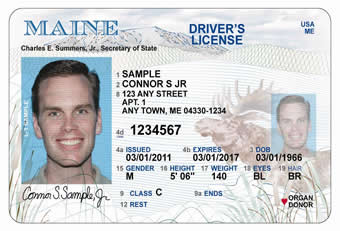Press Releases
Pingree Proposes Reforms to REAL IDSupports Bill That Safeguards Personal Data, Extends Deadlines for States
Washington, DC,
January 31, 2017
Supports Bill That Safeguards Personal Data, Extends Deadlines for States
Congresswoman Chellie Pingree is an original cosponsor of a bipartisan bill introduced today offering relief to residents of states that do not currently comply with the REAL ID law, including Maine. The bill--H.R. 755, the REAL ID Privacy Protection Act--was introduced by Representative Mark Sanford (R-SC). Rep. Mark Meadows (R-NC) is the other original cosponsor. “My constituents are worried about not being able to gain access to federal facilities or even board a flight in the coming months. These include 500 veterans who were told they didn’t have the right identification to access their VA doctors on an Air Force base,” said Congresswoman Chellie Pingree. “These folks shouldn’t have to deal with a problem that they didn’t create. I’m proud to support this legislation, which makes needed changes to the REAL ID Act so people in Maine and other affected states can go about their lives without interruption.” “REAL ID has been a thorn in South Carolina’s side since it was introduced in 2005,” Rep. Sanford said. “Indeed, in 2008, I formally objected to the Department of Homeland Security on the implementation of REAL ID along with Montana’s governor. In so doing, South Carolina and Montana were the first two states to act as catalysts in Homeland Security’s decision to lessen or not enforce 26 of the REAL ID’s worst aspects.” “I continue this fight now because the REAL ID Act is an unfunded mandate that essentially creates a de facto national database, which threatens personal privacy and violates state sovereignty,” continued Sanford. “This bill responds to these issues, brings more transparency to the REAL ID criteria, and mandates equality in the treatment of all states.” The REAL ID Privacy Protection Act would do four things: 1) eliminate the requirement for source document archiving; 2) eliminate the state DMV database inter-accessibility requirement; 3) grant a uniform extension for all non-compliant states to October 10, 2017; and 4) require the Department of Homeland Security to issue a report to Congress, detailing all aspects of complying with the law and each state’s compliance status for each item. |

